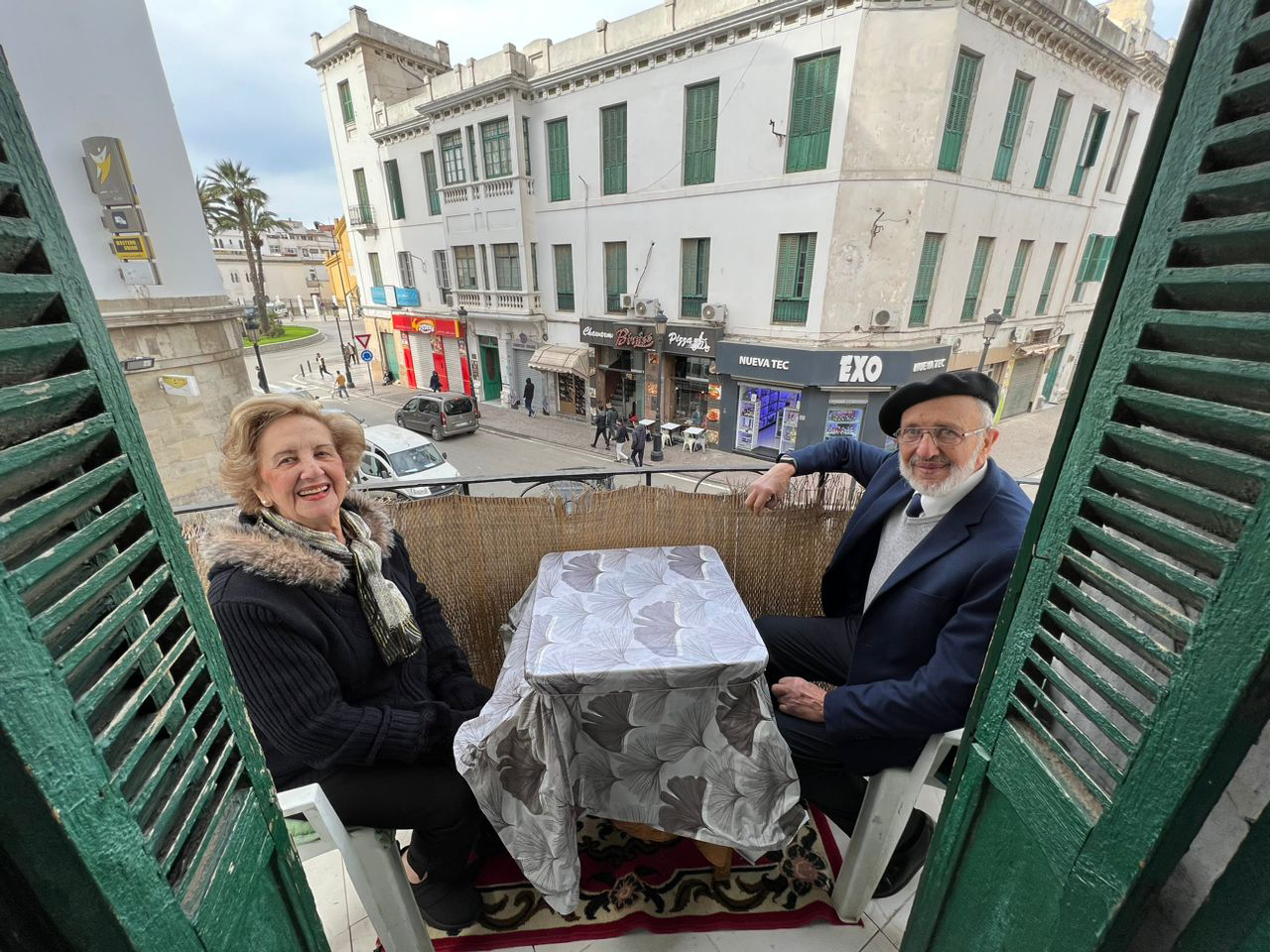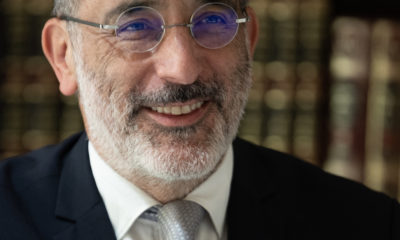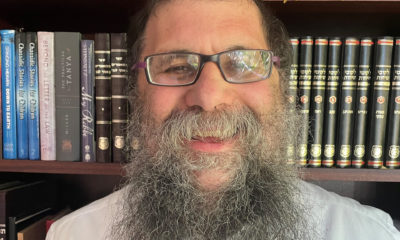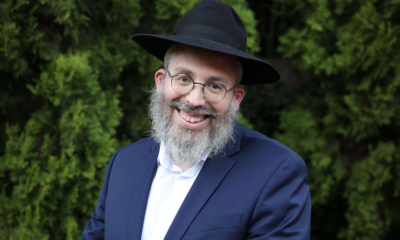
Featured Item

Speedy exodus – a uniquely Jewish story
A crucial moment in the Pesach story is when the Israelites are so rushed to leave, their bread doesn’t have time to rise. It’s emblematic of making decisions on our feet, following our faith, and taking a leap into the unknown. It’s a moment that many Jews have experienced in the past and will continue to experience as we find our place in a rapidly changing world.
When David Akinin was 11 years old, he and his three brothers were briefly kidnapped. “Two men came into our home in Caracas and took us captive. After several hours, we managed to run away.” It was a turning point for his family, and soon afterwards, they hurriedly left their home in Venezuela, seeking safety as refugees in the United States. “Our parents left everything behind, packed some bags, and looked for new beginnings, just as their parents did in Morocco and Spain 50 years earlier.”
At the time, Akinin was one of only a few children to leave from his class of 112 kids at his Jewish school in Venezuela. “We were seen as the crazy ones.” Now, 20 years later, about 90% of what was once a thriving Jewish community has left.
Akinin succeeded in America before eventually settling in Namibia, where he thrived. But his home is now South Africa, where he hopes to grow deep roots.
Recently, he, his grandmother, Lucy, her brother, and Akinin’s mother and uncle visited the apartment where Lucy grew up in Tetuan, Morocco. “My grandma has been back several times, but some years ago, I knocked on the door of the house where she lived as one of eight siblings and exchanged details with the lady who now stays there. After many years of contact, she hosted us earlier this year.” It was a full-circle moment for a family that has often had to flee, but has found new places to call home.
Like the Israelites wandering in the Sinai, Libah Stein took a chance on a journey and found a sense of solace in the desert. Her life in South Africa had become a struggle after her mother and grandmother passed away, and she battled to find a job. So when she was given an opportunity to do a Masa teaching programme in the middle of the Negev, she grabbed it.
Her decision was made within a few days, and she told hardly any friends she was going. She packed lightly, got on a plane, and didn’t look back. “I never thought of it as an exile or exodus, but looking back, that’s what it was,” she says. “I took a chance in applying for this programme, and they told me I would be accepted if I took a role in Mitzpe Ramon.
“The desert has a funny way of reflecting on people. Initially, I thought, ‘What have I done?’ It was so remote – the nearest proper shops were a one-and-a-half-hour bus ride away. Everything was brown. But then you start to see different shades of brown. And you smell the rain. I’ve never smelled rain like I did in the desert.”
Amidst this barren landscape, she was warmly welcomed into a colourful and nurturing community. “There were Orthodox Jews in suits and flipflops, mixing with windblown hippies – a true mix of people coming together.”
The head of her programme, her roommate, and the high school pupils she taught all welcomed her as she slowly discovered who she wanted to be, as a human being and a Jew. She immersed herself in this new life, and felt “a connection to my people and my purpose”. It was an exercise in discomfort, letting go of luxuries, but also finding everything she really needed.
Mitzpe Ramon in known for its huge crater, the makhtesh, and for Stein, this geological formation was an important part of her journey. “People would watch the sunrise or sunset from a wall overlooking the canyon. When I went there, people would say, “Shway shway” (slowly, slowly). It made me realise I could slowly take steps forward.”
The silence and majesty of the landscape allowed her to connect with the souls of her mother and grandmother, whose presence felt closer than they had back in South Africa. “I had such a fear that if I left South Africa, I would be letting them go. But I found their voices in the desert.”
Six months after she quietly left Johannesburg, she returned to South Africa with a changed perspective and a new passion for Judaism. “I started to see my purpose as a Jewish woman. Ultimately that answer came only from my journey, and deciding to return.”
Paul Mirbach’s idyllic childhood and carefree youth in Bulawayo came to an abrupt end in September 1976. The Zimbabwean (then Rhodesian) government passed a law that all boys aged 16 were required to register for army service.
“The law passed on a Thursday night. The next day, I noticed that almost all my Jewish friends didn’t come to school,” remembers Mirbach. “That Saturday evening while I was doing my homework, my father asked me how I felt about going to Cape Town to finish school. I thought about it for all of a second, and said yes.
“The events of the next two days were like a whirlwind. A flurry of phone calls with parents of other children my age was punctuated by hurriedly going to the stores to buy clothes and “getting my papers in order”. I remember arriving home after school on Monday with my preliminary O-level results, very proud of my grades, and for the first time in my life, my mother didn’t even look at them. She handed me a suitcase. I was still in my school uniform when I boarded the plane.”
Mirbach stayed at the Herzlia hostel in Cape Town, where he finished his schooling, became deeply involved in Habonim Dror, and eventually made aliya. He never returned to live in Zimbabwe. But “looking back, that period in Cape Town on my own was the seminal period in my personal growth. They were the formative years of my character. I learned to be self-reliant and independent. I learned to think for myself and make responsible decisions.
“I also learned to deal with loneliness. What surprised me was how deeply I felt adrift, without an anchor. The feeling of rootlessness and search for stability seeped deep into my consciousness.”
Akinin believes that leaving with just the clothes on your back and hope in your heart doesn’t have to be a negative thing. “Leaving but keeping our traditions alive is unique to the Jewish people. It’s about deciding on a better future for you and your family. As a Jewish community, we’re often first to raise our hands and say that we’re going to look for something different, that we won’t accept the status quo. We don’t leave and say, ‘Please help us’, we leave and say, ‘Let’s go rebuild.’ It’s a form of resilience passed down through the generations and our values.”










